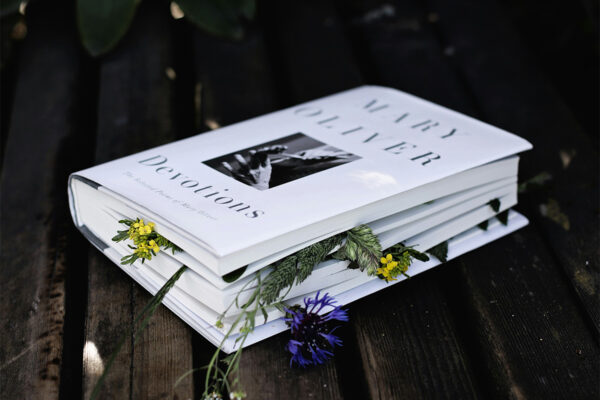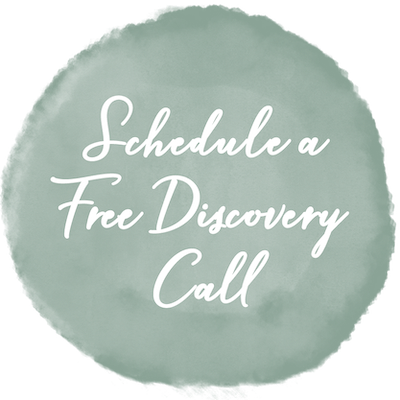I was scrolling through Instagram the other day when a post by Glennon Doyle caught my attention. She was sharing about how the poetry of Andrea Gibson had been such a support during her recovery journey, and it immediately reminded me of my own experience with Rumi's writings during my eating disorder recovery.
Reading Glennon's post, I felt a familiar sense of connection - when someone else's words perfectly capture what you've been feeling but can't quite put into words yourself. It took me back to how, years ago, I would turn to Rumi's poetry whenever I needed something to help me step back from whatever I was struggling with and to feel connected to something bigger.
Rumi's writings became a way for me to feel grounded when my eating disorder thoughts were especially loud. They helped me remember that life was more expansive and meaningful than the narrow focus my eating disorder was causing me to have.
This started me thinking about the healing power that poetry can offer during eating disorder recovery, and how perhaps more of us could benefit from exploring this form of support as well.
Why Poetry Works Differently
There's something about poetry that's different from other kinds of writing or even therapy. Instead of being linear and logical, poetry works through metaphor, rhythm, and imagery. It seems to bypass our thinking minds and speaks directly to our hearts - which is often exactly where I think we need the healing to happen.
During my recovery, Rumi's words had a way of cutting through all my anxious thoughts in a way that nothing else could. When I was caught up in eating disorder worries about my body or fears about recovery, his poetry would shift my focus to something that felt more real and lasting.
As I mention in my book recommendations, while I love reading full poems, often just quotes found on Pinterest or Google Images were perfect because they were quick and easy to absorb during a busy day. There was something about the concentrated wisdom of poetry that could change my whole perspective in just a few moments.
What Research Says About Poetry and Healing
And I realized that there is actually research on this - it's called bibliotherapy, which is basically using literature for healing. Dr. John Fox, who has done a lot of work with poetry therapy and even founded The Institute for Poetic Medicine, explains that poetry engages both sides of our brain, bringing together logical and creative thinking in ways that can help us process things differently. I had no idea this was something that had actually been studied, but according to what I found online, there have been studies that have found that reading and engaging with poetry can:
- Help reduce depression and anxiety
- Improve emotional regulation
- Increase self-compassion and self-understanding
- Help us feel less alone in our struggles
- Offer new ways of looking at difficult experiences
For those of us struggling with an eating disorder, these benefits can be deeply meaningful. Poetry can help us access and express feelings that might be too complicated or overwhelming for regular conversation or even journaling.
Why Poetry Works Well for Eating Disorder Recovery
I think there are several reasons for why poetry can be especially helpful during recovery:
It puts words to things that are hard to describe: Eating disorders involve so many feelings and experiences that are difficult to articulate - the terror of eating a fear food, the complicated feelings about body changes, the sadness of letting go of behaviors that felt protective. Poetry gives us language for these experiences in ways that feel authentic rather than clinical.
It offers a bigger perspective: Poetry has a way of zooming out and helping us see our struggles as part of the larger human experience. When Rumi writes about change and growth, it reminds me that recovery is part of something meaningful and worthwhile.
It speaks to the deeper part of us: Recovery isn't just about changing what we eat or do - it's about reconnecting with who we really are underneath the eating disorder. Poetry can speak to that wise, healthy part of us even when the eating disorder voice is loud.
It's always available: Unlike therapy appointments or support groups, poetry can be with us wherever we are. A poem saved on your phone can be there during a difficult meal or a tough body image moment.
It offers hope: Many poets write from their own experiences of struggle and healing. Reading their words can remind us that others have been through difficult times and found their way through.
Finding What Works for You
Just like Glennon found comfort in Andrea Gibson's words and I connected with Rumi's writings, everyone will resonate with different poets and styles. Some people might prefer contemporary spoken word poetry, while others connect more with classical poets.
The key is just to explore with curiosity. Try different poets and see whose voice speaks to you. Notice which poems make you feel less alone, more hopeful, or more connected to yourself.
Here are some simple ways to bring poetry into your recovery:
- Explore the work of different poets online, and if one really speaks to you, you could look into getting a full book by them from a bookstore or library. Put sticky tabs by the poems that really speak to you.
- Save a few meaningful poems on your phone for difficult moments
- Read a short poem as part of your morning routine
- Share verses that resonate with you with friends or your treatment team
- Try writing your own poetry as a way to process feelings
- Look for poetry readings in your area or online communities
We're All Looking for the Same Thing
What I loved about Glennon's post was how it reminded me that we're all seeking similar things - words that help us feel understood and less alone in our struggles. Whether it's Rumi's mystical approach to transformation, Andrea Gibson's honest exploration of identity, or any other poet who writes about the human experience with authenticity, poetry can bridge the gap between where we are and where we're healing toward.
In a culture that seems to want us to keep our struggles private and our healing neat and linear, poetry reminds us that growth is messy and human and that our recovery stories are part of something bigger.
A Gentle Tool for Your Toolkit
Recovery requires so much of us - facing fears, sitting with discomfort, trusting in outcomes we can't see yet. Poetry can be one of the gentler tools we give ourselves along the way. It doesn't ask us to be different than we are right now, but it does invite us to see our experience through a lens of possibility and meaning.
As you continue on your recovery journey, I'd encourage you to explore poetry with the same openness you're learning to bring to other areas of your life. You might be surprised by what resonates with you and how the right words at the right moment can make a true difference.
Two of my favourite Rumi quotes that helped me through difficult times are: "The wound is the place where the light enters you” and, “As you start to walk out on the way, the way appears”. You might also notice that I have them sprinkled throughout the pages of my website, which I just remembered I had done.
With so much love and hope for your journey,

Some Ideas:
If you do want to explore poetry, some starting places could be Rumi's "The Book of Love", Andrea Gibson's collections, Mary Oliver's work, or any poet whose voice speaks to you. Button Poetry is an organization that focuses on performance poetry, and Andrea Gibson’s work here took my breath away. Trust your instincts about what feels supportive - you'll know what resonates.
Support For Your Journey
If you feel you could use more support on your eating disorder recovery journey I would love to connect with you. Contact me to book a free video discovery call so that we can explore if working together would be a good fit. I would love to hear from you.











